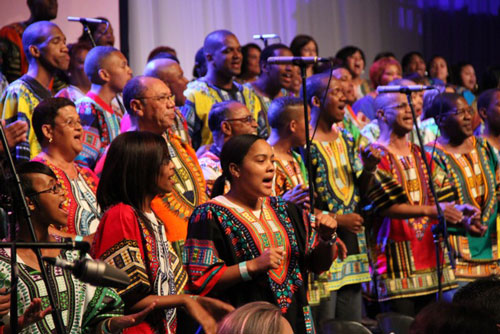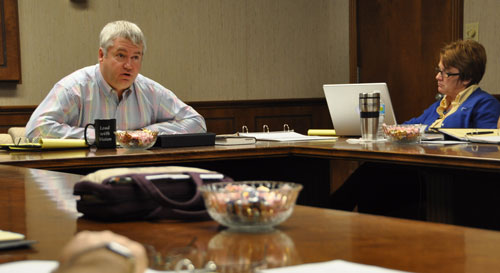October 18, 2010
|

The opening of the Third Lausanne Congress on World Evangelization

A South African choir during the opening service of Cape Town 2010.
Jeff Bleijerveld is in Cape Town, South Africa, representing the United Brethren Church as one of 4000 participants selected from 200 countries.
Cape Town 2010, also known as Lausanne III, opened Sunday night, October 17, amid much fanfare. The opening session was hosted by Doug Birdsall, the Lausanne Director, who declared this Third Lausanne Congress on World Evangelization officially “open.”
With more than 4000 participants and more than a thousand observers from the media, the Vatican, Orthodox and other religious groups, the Congress is one of the largest gatherings of Christian workers in the history of the evangelical Church. Wonderfully “missional” musical pieces were prepared and performed by a multi-national orchestra and a 120-voice South African choir.
All participants meet around tables of six from various regions of the world. The room we are in has more than 800 tables. My table is represented by delegates from Malta, Bangladesh, Slovakia, and Myanmar.
This morning (Monday), we began dealing with the question of truth and specifically making the case for the truth of Christ in a pluralistic, globalized world. Having read papers on the subject in advance and hearing follow-up lectures from various speakers, we began to deal with the challenges and opportunities faced in each of the countries we represent. It was a great time of sharing, learning, and praying for one another.

 Kelly Savage (right) is the new chair of the Board of Trustees. She is the first woman to serve in that post in the university’s 113-year history. She replaces Ed Souers, chairman for the past six years.
Kelly Savage (right) is the new chair of the Board of Trustees. She is the first woman to serve in that post in the university’s 113-year history. She replaces Ed Souers, chairman for the past six years. Dr. Herb Schumm (right) of Spencerville, Ohio, was elected vice chair. Schumm, a 1982 HU alumnus, is a medical doctor and vice president for media affairs at St. Rita’s Hospital in Lima, Ohio.
Dr. Herb Schumm (right) of Spencerville, Ohio, was elected vice chair. Schumm, a 1982 HU alumnus, is a medical doctor and vice president for media affairs at St. Rita’s Hospital in Lima, Ohio.

 All senior pastor and churches are required to participate in a cluster, which is generally a group of senior pastors from 6-8 churches. During the past year, Dennis Miller (right), senior pastor of Emmanuel Community Church (Fort Wayne, Ind.), has been working one day a week as Director of Clusters. In that role he oversees the cluster system.
All senior pastor and churches are required to participate in a cluster, which is generally a group of senior pastors from 6-8 churches. During the past year, Dennis Miller (right), senior pastor of Emmanuel Community Church (Fort Wayne, Ind.), has been working one day a week as Director of Clusters. In that role he oversees the cluster system.